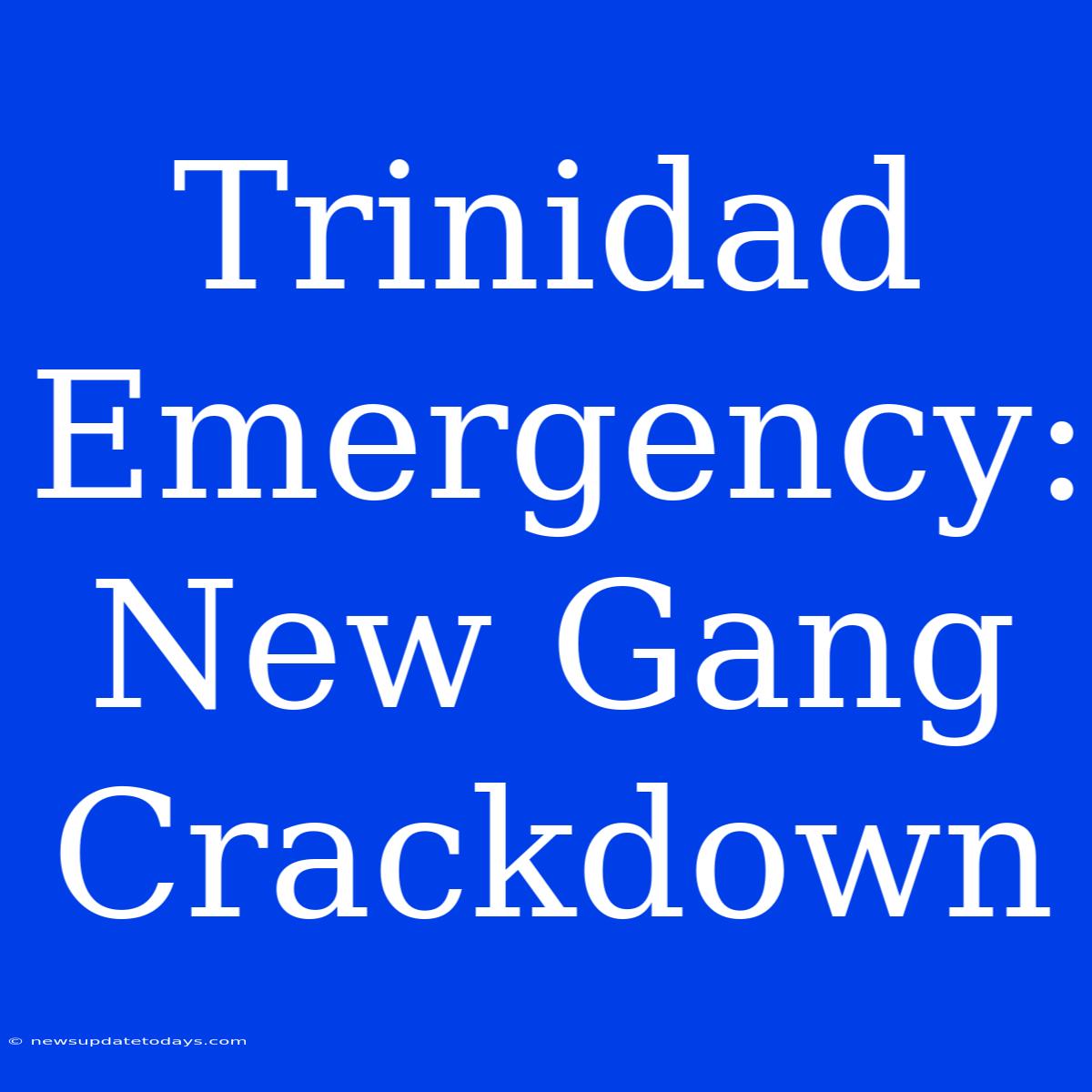Trinidad Emergency: New Gang Crackdown – A Nation on Edge
Trinidad and Tobago is grappling with a surge in gang violence, prompting the government to implement a state of emergency. This drastic measure aims to curb the escalating crime rates and restore a sense of security to the nation. But what does this mean for the people of Trinidad and Tobago, and will this emergency truly solve the deeply rooted problems fueling the violence?
Understanding the Current Crisis
The recent spike in gang-related activities has left the nation reeling. Murders, kidnappings, and armed robberies have become increasingly commonplace, creating a climate of fear and uncertainty. The escalation in violence has overwhelmed law enforcement, pushing the government to declare a state of emergency as a last resort.
Key Aspects of the Crackdown:
- Increased Police Presence: A significant increase in police and military patrols is being seen in high-risk areas. Roadblocks and increased surveillance are now common.
- Curfews: Curfews have been imposed in specific areas, restricting movement and limiting opportunities for criminal activity.
- Enhanced Surveillance: The use of technology, including increased CCTV monitoring and potentially drone surveillance, is being explored to enhance law enforcement capabilities.
- Targeted Arrests: The authorities are conducting targeted arrests of suspected gang members, aiming to dismantle key networks.
- Community Involvement: While the focus is on law enforcement, the government is also emphasizing the importance of community engagement and long-term solutions to address the root causes of gang violence.
Is a State of Emergency the Answer?
While a state of emergency provides immediate short-term relief by increasing police presence and curbing criminal activity, its long-term efficacy is debated. Critics argue that this approach is merely a band-aid solution, failing to address the underlying issues driving gang violence.
Underlying Issues Fueling Gang Violence:
- Socioeconomic Inequality: High levels of poverty, unemployment, and lack of opportunity create fertile ground for gang recruitment.
- Lack of Educational Opportunities: Limited access to quality education prevents young people from achieving their potential and seeking alternative paths.
- Weak Social Safety Nets: Inadequate social support systems leave vulnerable individuals without the necessary resources and guidance.
- Easy Access to Weapons: The proliferation of illegal firearms fuels the cycle of violence.
The Path Forward: Long-Term Solutions
A sustainable solution requires a multi-pronged approach, addressing both the immediate security concerns and the underlying social and economic issues.
Essential Long-Term Strategies:
- Investing in Education and Job Creation: Providing quality education and job training programs is crucial to empower young people and reduce their vulnerability to gang recruitment.
- Strengthening Social Safety Nets: Expanding social support programs can help provide vulnerable individuals with the resources and support they need.
- Addressing Gun Violence: Strengthening gun control measures and enforcing existing laws are vital to curb the flow of illegal firearms.
- Community-Based Initiatives: Investing in community-based initiatives that focus on crime prevention and rehabilitation can help break the cycle of violence.
- Improving Police-Community Relations: Building trust between law enforcement and communities is essential for effective crime prevention and investigation.
The state of emergency in Trinidad and Tobago is a critical response to a serious crisis. However, true lasting peace requires a long-term commitment to addressing the complex social, economic, and political factors that fuel gang violence. Only then can the nation hope to achieve lasting stability and security for its citizens. The coming months and years will be crucial in determining whether this emergency serves as a turning point or merely a temporary reprieve.

